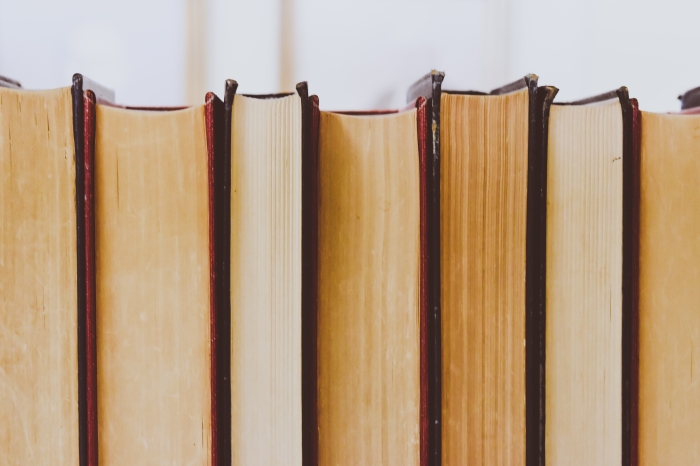Do you have male and female characters in your story? Apparently, statistically speaking, you’re probably using physical attributes to describe the women, while the men get more personal qualities. Female characters might be lovely or undernourished, while their male counterparts are more likely to be rational or bigoted.
Why can’t we have a rational woman or an undernourished man? Why not the farmer’s bigoted daughter or the group of lovely young men waiting for the train?
According to the article I just read, machine learning was used to analyse 3.5 million books written in English over the last century or so, and to pick out the adjectives used to describe men and women. The results don’t look great. In fact, it looks like women are reduced to objects while men get to be rounded characters. Which isn’t just annoying, it’s pretty boring.

So let’s take a look at the words, shall we:
Male Characters
Positive Traits: just, sound, righteous, rational, peaceable, prodigious, brave, paramount, reliable, sinless, honourable
Negative Traits: unsuitable, unreliable, lawless, inseparable, brutish, idle, unarmed, wounded, bigoted, unjust, brutal
Female Characters
Positive Traits: beautiful, lovely, chaste, gorgeous, fertile, beauteous, sexy, classy, exquisite, vivacious, vibrant
Negative Traits: battered, untreated, barren, shrewish, sheltered, heartbroken, unmarried, undernourished, underweight, uncomplaining, nagging
Of course, I have a few questions (you knew I would, right?):
- Was there an equal sample of recent books and those from the early part of the twentieth century?
- Has there been any change more recently, or is there still evidence of sexism in recent books?
- Is there a difference when it comes to male, female or non-binary writers?
- Is there a difference when it comes to romance?
- What about more specific descriptions, rather than looking at adjectives?
OK, so while there are no answers to my questions, there are a few things to pick out from the lists.
First, I’m not sure I agree with whoever decided on the positive and negative traits. How is “inseparable” a negative? Or “unarmed”? Or “uncomplaining”?
Second, I’d say the negative traits are where the sexism becomes really apparent, rather than the positives. “Shrewish” and “nagging” make me grind my teeth (although, so does “fertile”…shudder…). Some of the negative traits for male characters, on the other hand, are almost badges of honour: lawless, brutish, wounded.
Third, looking at the words, I’d say I can answer my own question that there are either just as many books from the early twentieth century as more modern books, or it might even be that the sample size is smaller for modern books. “Chaste” is the third most common adjective for female characters… I mean, really? Who’s using “chaste” any more? Or “beauteous”? Or “paramount”? Unless there are a lot more period novels than I thought, and they’re rife with bland adjectives, it looks like these are coming from older writers.
That bodes well, and honestly I’m pretty sure we must be using more interesting descriptions instead of so many adjectives too. I also suspect, as a romance reader, that more modern romances steer clear of boring adjectives and female characters who are only there for window dressing.
Which makes me happy. I don’t hate adjectives. They’re useful. But at the same time describing characters in overused cliches is an example of telling rather than showing, and a lot of the time you’re going to want to do better.
So drop those boring, sexist adjectives already. That goes double for anyone still writing bland 2D cutouts of women into their stories.
It’s the 21st century, you can do better.




Unmarried!?
Wow, I am really undesirable then…🤣
I think whatever machine read these books needs to find new books. Buck their human overlords! This is such a tiny sample compared to the trillions of books in the world.
Were they all in English? Did they have any in other languages at all? Who authorized this study? I’m slightly offended. *sniff*
I think that’s the thing isn’t it? It’s partly irritating because you have this creeping suspicion that the books selected had a very specific demographic in terms of both author and intended readership…
I read a lot of romance, a lot of it queer, and I don’t get this impression from the books I read. Male characters are just as likely to be physically described and female characters are just as likely to be rounded. Which leaves me wondering how they chose their sample. It needed to be a proper cross section of writing, and weighted to take into account changing attitudes. I doubt that it was.
*shrugs* I think you’re very desirable, but then I know you as a person not a background character.
You say the nicest things to me. I’d happily be a background character in anything you wrote because even then I’d be well-rounded. 😄❤💋
Aww I love you so much xoxoxoxo
Great post!
Thank you! xo
Wonderful, informative piece. I agree, from the adjectives chosen the books sounded ‘less than current’.
Lets all make sure to do better, you have me inspired!
It certainly looks that way, doesn’t it? But yes I think it’s worth being conscious of the need to do better! Let’s have some physical attributes for men (I mean, yes please) and some personal qualities for women beyond “plucky”, which is at least a little condescending lol
Pingback: Jeepers Creepers : Halloween #SoSS - Posy Churchgate : Pillow Talk
your post is a fresh look for me! thank you!